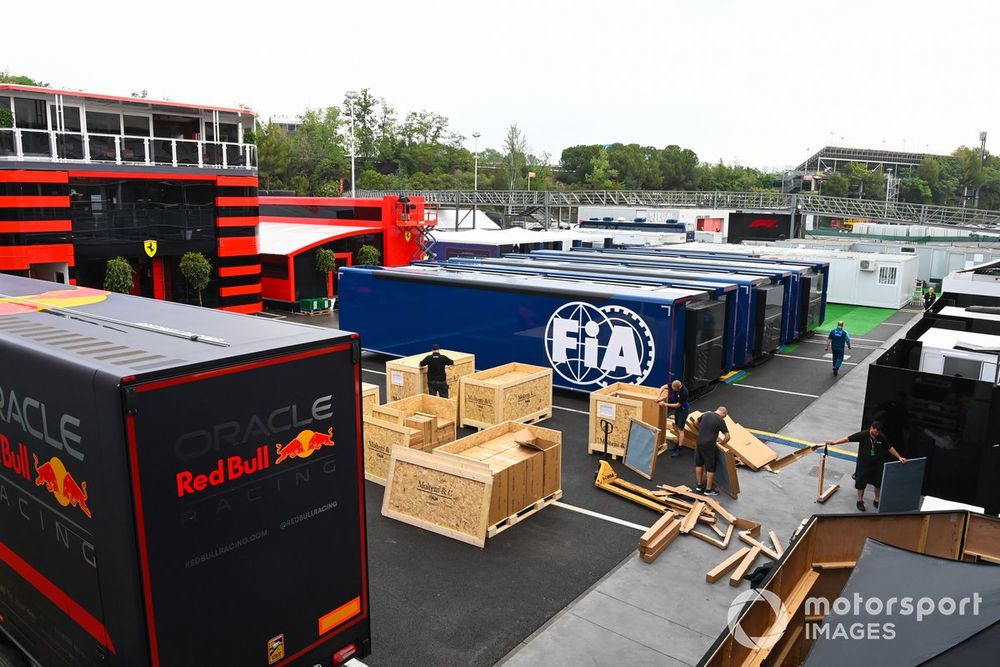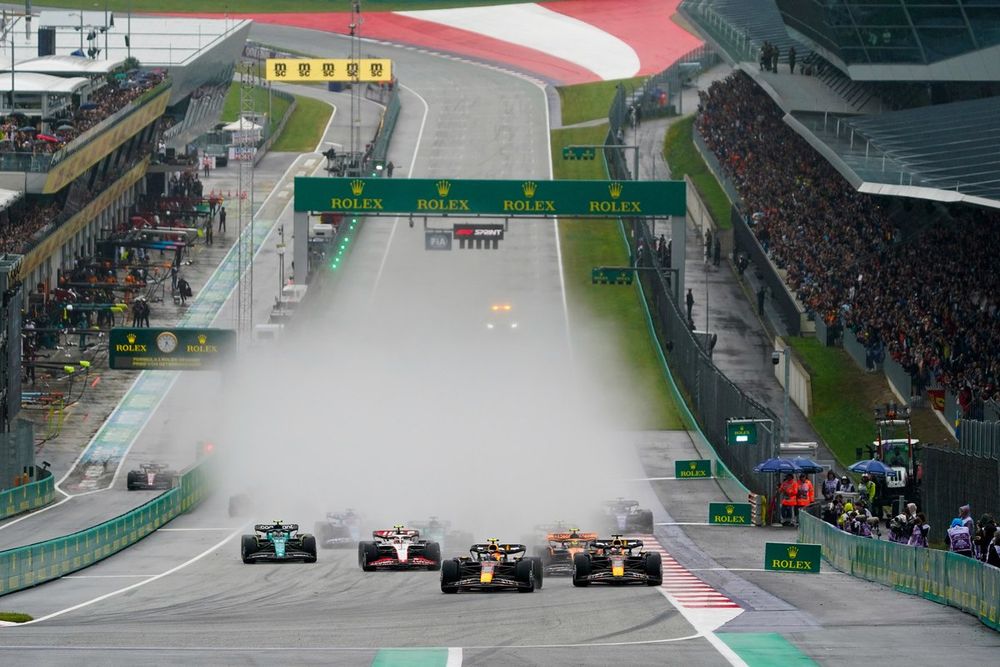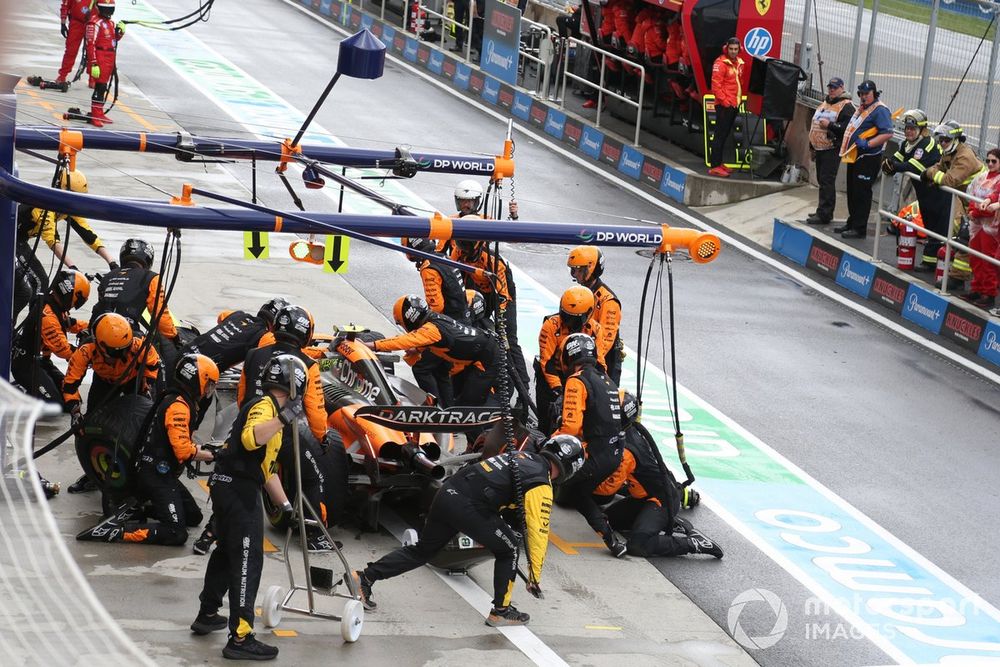


“I think trebles are not sustainable,” said former Racing Point and Alpine director Otmar Szafnauer. “I don’t think it’s a good idea,” added former Haas team principal Guenther Steiner in 2020.
Former McLaren team boss Andreas Seidl – now CEO of Sauber – added to the concerns about triplets in 2021: “[Un] An important issue is also the number of triplets. From my point of view, we should avoid them completely to reduce the workload of our people. The calendar should try to avoid having these triplets.”
However, several years after those statements, Formula 1 teams prepare for three consecutive races of Barcelona, Austria and Silverstone, so it is worth looking back and remembering the teams’ initial reaction to the triplets.
It may also be worth noting that the comments are made by the managers of the teams who fly in the front of the plane, rather than those who fly in economy class, or by those who do the physical tasks of construction and disassembly, or those who work in the kitchens and others, who normally work three shifts each day.
He calendar increase to 24 racesa record number this season, which is also the maximum allowed by the regulations, has given rise to two triplets this season and the following races could mean a trip of more than 3,000 km by road through the three destinations already mentioned.

But the second treble, which will take place at the end of the season, is a totally different proposition when you take into account the time differences, the jet lag and travel fatigue.
Those three races will begin in Las Vegas before traveling to Qatar and Abu Dhabi. That’s a 10-hour difference before even starting the 17-hour trip from the United States to the Middle East.
Despite the concerns of the team leaders, triplets are now part of the fabric of modern F1 and, as a result, are widely accepted.
But, Are there dangers associated with such an intense work schedule and how can they be prevented?
Motorsport.com spoke to him Dr Tom Brownleedirector of sports science at the Sport Science Agency, as well as with the Dr. Dan Martinowner of Combine Performance, which actively works with Formula 1 teams and drivers.
According to Martin: “The biggest problem is the physical fatigue. “As time goes by, by the third week the bodies are very tired, which increases the risk of injuries, especially in the lower back, knees and wrists.”
“The other element is psychosocial: missing the family or not being able to help in a meaningful way with the family problems that each person has at home.

“Being away from home – and instead with team members 24/7 – can increase irritability and lead to decreased team cohesion“.
“You have to remember that staff don’t go home after a day of work. A work day here lasts between 12 and 14 hours and they all move together, work together, dine together and socialize together,” he said.
Since triplets are relatively new, there are still many unknowns. One team mentioned a decrease in fertility levels, but without scientific data it is not possible to prove this. But if parallels are drawn with other shift work models, there are some justified concerns that need to be addressed.
Martin added: “We don’t know if anyone is collecting and recording all the data to accurately report on this issue in Formula 1.”
“Consistent sleep and wakefulness are known to be linked to health and longevity. In contrast, people with irregular or erratic sleep-wake schedules (such as shift workers) live shorter lives and have higher rates of of illness and mortality.
“We don’t know if that’s also true for F1, where they have some of the most irregular sleep patterns, but it could be possible over a long period of time,” he explained.

So what can teams do to help staff avoid unnecessary health risks or injuries? Each team has access to advice from coaches and performance experts, like Dan, who can develop routines to help with changing time zones.
Dan explained: “We have strategies against jet lag. “Performance coaches create jet lag plans for each race outside of Europe and encourage the team to prioritize sleep when they have free time.”
“Although efforts have been made to create a calendar by region, staff are still doing a lot of time swinging, going back and forth between races.”
“Limiting the number of races that staff attend and doing some sort of rotation can help reduce the load throughout the season.”
The other element to take into account It depends on the teams and how they manage their staff..
Martin adds: “It is important that, where possible, teams give staff as much downtime as possible during their absence. Just an extra 45-60 minutes on days where possible makes a big difference.”
“If granted, team members must use that time wisely and responsibly.”
Since they are not ‘athletes’, some (but not all) have the habit of ‘relaxing’ with alcohol.
“Likewise, if they are given time off, they will eat out rather than be served by the team. It is important to use that time to recover, sleep, get some exercise rather than eating poor quality food and drinking excessive alcohol. “.
“That’s one of the reasons performance coaches are there, to provide structure and increase access to these things. During the work day it’s hard to make big changes. More can be done before and between races so that the staff is more prepared.
“Another option would be that they were not required to participate in all 24 races and all triplets.”
Some teams have already adopted a rotational team modelespecially mechanics and garage technicians, whose work is much more physical than that of engineers, do not travel to more than a certain number of races (for example, 18 per season).
It is still an intense schedule, but it offers much-needed recovery periods and physical and mental breaks throughout the season.
“Ensuring team members have their own hotel room, which is not always the case, is very beneficial for the quantity and quality of sleep on the go and for improving mood.”
“It’s their own space and gives them privacy to catch up and talk to their families on the phone or through video calls. A season is a marathon and there will be difficult periods.”
“It’s important to monitor yourself, listen to your body and recover as you go. You have to do the basics: eat well, hydrate, limit alcohol and prioritize sleep.”
As a last resort, The long-term impact of the 24-race calendar and triplets is not yet knownbut teams have the ability to ease the burden on their employees to try to keep them in shape and healthy and recovered when they need them most.
At the moment, it is your responsibility to ensure that your staff are taken care of and rested whenever possible.
This article has been made with the collaboration of Sport Science Agency.
Do you want to read our news before anyone else and for free? Follow us here on our Telegram channel and you won’t miss anything. All the information, at your fingertips!

